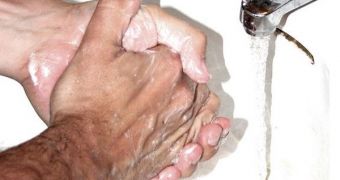There are many manifestations, or forms, of obsessive-compulsive disorders (OCD), some of which may appear innocuous. However, they are a hint to a deeper problem that needs treatment. At this point, there are no cures for OCD, but experts say that mouse studies might help in this regard soon.
Scientists at the University of Chicago are already hard at work in this direction, using the unsuspecting rodents as proxies for the human brain. What they want to do is use the genetically-engineered mice and turn them into models for our species' form of the condition.
There are numerous similarities between our brains and those of mice, and this is precisely what the team relies on. According to the lead author of the new paper, Chicago scientist Nancy Shanahan, PhD, the new study might also provide additional insights into how to fight autism.
A paper describing the investigation appears in the latest issue of the esteemed medical journal Biological Psychiatry. Expert Stephanie Dulawa, PhD, was the senior author, PsychCentral reports.
“Treatment for these people is greatly needed, and there really are very few highly valid animal models of the disorder,” Shanahan explains, saying that the team is very interested in establishing a basic OCD model in the tiny rodents.
Once this is achieved, more of these creatures can be grown, and sold to other research labs around the world. This would enable other experts to start studying potential ways of intervening on the human brain. However, OCD is likely to safeguard its complex secrets as much as possible.
“Our model can make accurate predictions about what you see in OCD, and that gives us confidence that the underlying neurobiology is likely to be similar between the model and the actual disorder,” Dulawa explains.
The researcher says that official statistics from the National Institute of Mental Health – a division of the US National Institutes of Health (NIH) – indicate that as many as 2.2 million citizens suffer from some form of OCD in the United States alone.
Some of the most common, apparently-harmless forms of the condition include repetitive hand-washing, constant counting and cleaning beyond any reasonable limit. This makes the disorders very tough to identify in the general population, as no one pays attention to such behaviors.
“OCD is very mysterious and very prevalent. The development of OCD-specific treatments will be an extremely important step toward helping these people and preventing the disorder’s cost to society,” Shanahan concludes.

 14 DAY TRIAL //
14 DAY TRIAL //